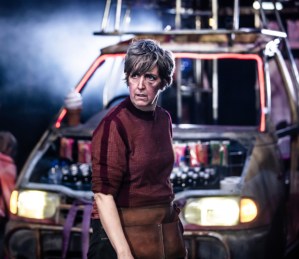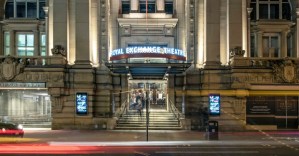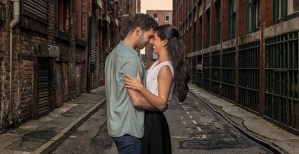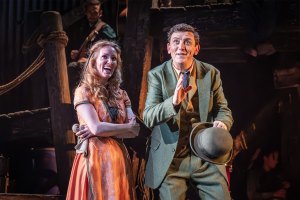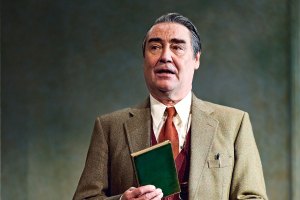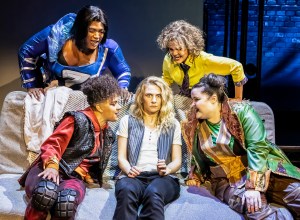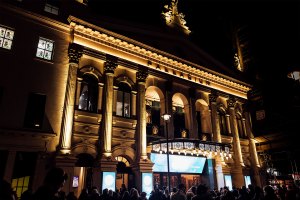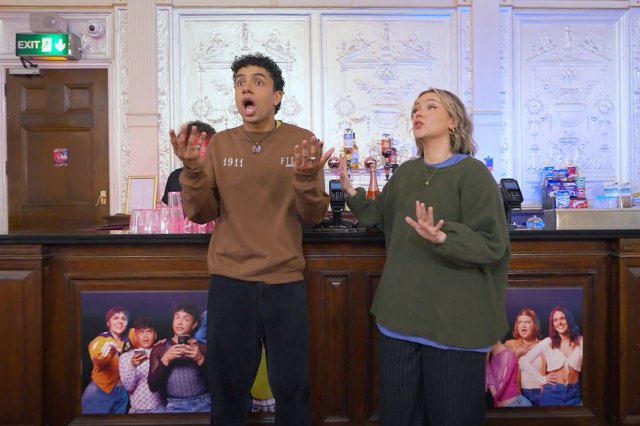Review: Mother Courage and Her Children (Royal Exchange Theatre)
Julie Hesmondhalgh stars in this re-imagining of Brecht’s play about war
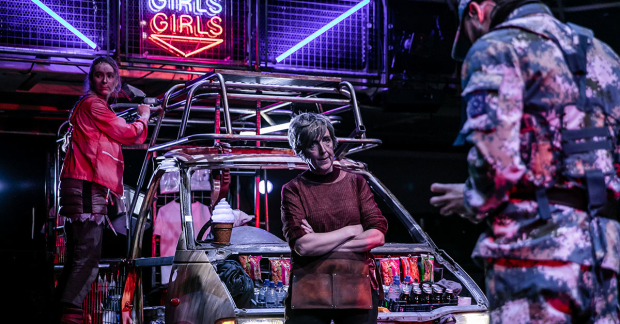
© The Other Richard/ Richard Davenport
It seems both testament to Bertolt Brecht's vision as a writer and a sad indictment upon modern Western society and politics, that Mother Courage and Her Children remains such a startlingly relevant piece of work over seventy years after its original release.
Written in 1939 as a riposte to rising fascism and Nazism in his homeland of Germany, Brecht chose to set his play in the Thirty Years' War which took place in seventeenth-century Europe. Anna Jordan's adaption of Mother Courage for the Royal Exchange is brought forward in time and set in a dystopian 2080, as war rages between the Blue and Red armies. What was once known as Europe has been divided into grid-like zones, not entirely dissimilar from The Hunger Games series. Indeed the twelve stars that illuminate the perimeter of the Exchange's in-the-round stage serve as an acute and distant reminder of the bond that once existed on the continent; in this world and this production of Mother Courage, chaos rules.
Joanna Scotcher's set design is absolutely superb, with a number of sublime details contributing towards the successful re-imagining of a classic story and the apocalyptic vision of the continent evident from the outset. Being a chronicle play, one lovely touch is the eleven scene names scrawled on cardboard cut-outs hanging overhead around the stage. Furthermore, in the final moments of the play and having lost all her children, Courage loads up her wagon lit by single meagre fire glimmering in a huge metallic drum on stage. As the flame is finally extinguished, one truly understands her intense loneliness and desperation.
Mother Courage's wagon itself also deserves special praise. Swapping the decrepit wooden cart from Brecht's original, this production uses an ice cream van as the family's home and livelihood. Indeed, the van is more than just a prop and becomes something of a barometer to indicate how the war is going for the mother and her children. During a period of success, as the cart is laden with stacks of shiny cans and weapons, Courage utters one of the saddest lines in the play, bemoaning that 'bloody peace' means she will have to offload her stock. Only a couple of scenes later the war bites back hard; supplies have dwindled and the van is a hollow shell, as Kattrin shivers herself to sleep protected solely by a sheet of tarpaulin. In these moments, as parent and child heave their wagon and only means of survival across the desolate landscape, it rings of Cormac McCarthy's The Road.
The adaption to the modern day does not feel jarring but what is disappointing about this production is that one could not say the same about the script. For the majority of the play dialogue feels forced and obvious, containing far too much superfluous exposition. The attention to detail and quality of the apocalyptic set is sufficient to make a viewer understand where they are and the themes that are being discussed, namely the division of people and how war feeds those at the top of society. It feels unnecessary therefore to have a script that constantly bashes an audience over the head with metaphor.
Julie Hesmondhalgh's performance as Mother Courage is solid. During the first act in particular, her portrayal of Courage operates on one level – either shouting or providing a quip about the war, there is not any primal sense of emotional attachment to her children or the wagon until things become exceptionally difficult for her and Kattrin in the final scenes.Carolyn Downing's sound designs are also a little disappointing – given the futuristic vision of the story, it seems strange to have a music that relies so heavily upon acoustic sounds. The composition works far better when noise become more distorted and metallic in the second half.
Ultimately, whilst this is a brave and interesting take on a classic anti-war play it feels like a missed opportunity in more ways than one.




